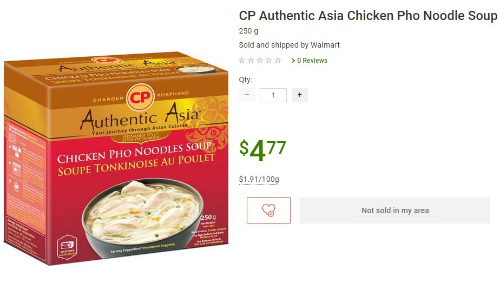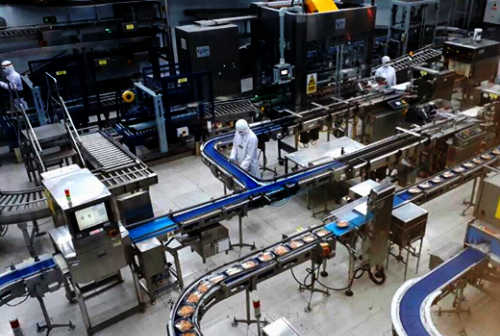What if one day Vietnam imports pho?
It would be no surprise if one day Vietnam imports pho, its most well-known food. It is an inevitable result of globalisation and is no different from the way Koreans import kimchi or the omnipresence of pizza restaurants owned not by the Italians but by US and Japanese companies.
Many are astonished when hearing that packaged pho made in Thailand is selling like hot cakes in the US. After this surprise came worry and then sadness at Vietnam facing the risk of losing its “copyrights” to pho. But there is nothing abnormal here and what’s up when Thais are making Vietnamese pho?
The world is a vast network of connections and so are business and culture, a fact that has been known for a long time. In the world of food, numerous dishes that are the specialties of one country have become internationalised and made in many other countries.
 |
Thai-made chicken Pho sold on a website of WalMart Canada. (Source: VNE)
Pizza has its origins in Italy and is a pride of the boot-shaped country but now it is hard to estimate how many countries are making pizza. In Vietnam, local people are also making and selling pizza like most other places around the world.
Besides the restaurants of Vietnamese owners, there are also other popular chains whose owners do not come from Italy. Pizza Hut and Domino’s Pizza are owned by the Americans, while Alfresco’s and Pepperonis come from Hong Kong (China). It is worth mentioning that a number of Korean and Japanese pizza brands are also present in Vietnam.
As for Thai food, Vietnamese have also opened plenty of Thai-style restaurants in large cities. In the age of globalisation, such stories have become commonplace. So what if one day Thailand exports packaged pho to Vietnam? It is also a normal thing since it is widely known that each year, Koreans import hundreds of thousands of tonnes of kimchi - their quintessential food – from the neighbouring country of China.
When talking about Vietnamese food, besides pho, I usually think of tea. Vietnam has a long-standing tea culture and in the modern period, the country is also a tea power. Each year Vietnam ships about 200,000 tonnes of tea abroad and is among the largest tea exporters but the industry is now desperately trying to tempt young people into drinking tea.
Such a paradox had been in existence for years before the job was done by Japan, Singapore and Taiwan (China) with the introduction of bubble tea. The craze began years ago and has seen no signs of coming to an end. From large bustling cities to quite rural towns, bubble tea shops are almost everywhere. In major cities, there are even streets where such shops sit neatly side by side.
 |
A corner at CPF factory, where made-in-Thailand Pho is manufactured. (Source: VNE)
Foreign companies comfortably cash in on franchising their brands and selling materials for Vietnamese shop owners while young Vietnamese people patiently wait in queue for a cup of bubble tea which costs as much as nearly half a kilogram of the dried tea that Vietnamese businesses are exporting.
In this increasingly fierce competition, whoever can improve upon the materials and cooking methods as well as catch up with the latest trends to produce better flavoured and more reasonably priced products will be the winners.
That is the law of the market economy known to everyone. But how to put it in to practice is a different matter as seen in the state of the Vietnamese tea industry. Vietnam is still making tonnes of traditional tea and praising its tea culture without endeavouring to develop new tea-based products that suit the tastes of contemporary consumers.
Are Italians worried when other countries are selling pizza? No, not at all. The Italian brand is more widely known when there are more pizza restaurants, no matter who the owners are. Thais are making money from packaged Vietnamese pho but they are inadvertently advertising Vietnamese food to the world.
What’s normal about Thais selling Vietnamese pho is that it comes in accordance with the economic law that everyone knows. What’s abnormal is that no one takes action to encourage Vietnamese people to sell Vietnamese pho. It is also certain that none has yet thought of the benefits from Thais helping us to advertise pho.
And now if Thais could make tasty and affordable packaged pho, there is no reason for Vietnamese families to turn down what’s on offer. And the story will not stop at pho./.
( VNF/NDO )



